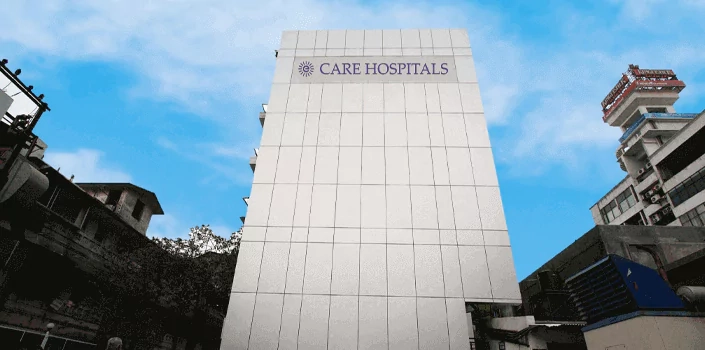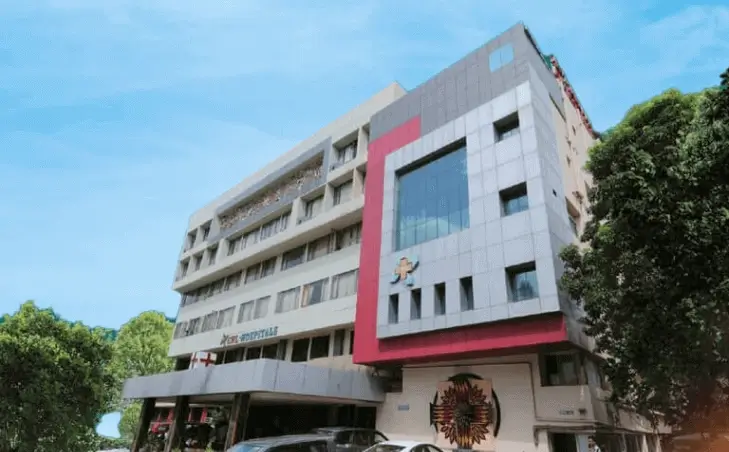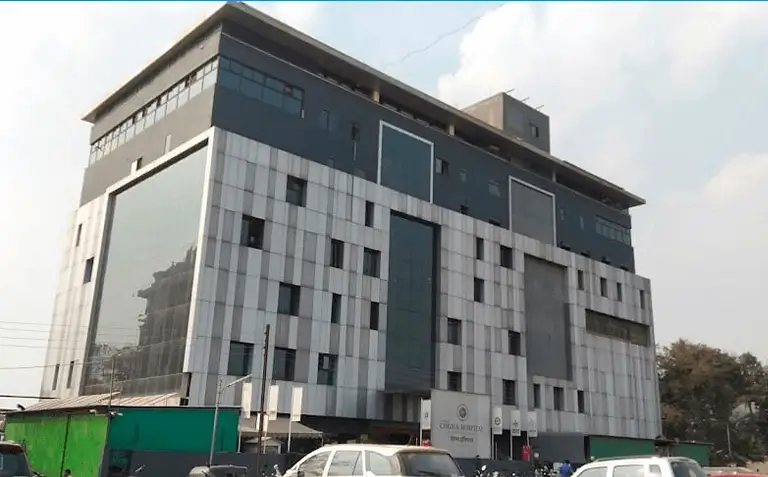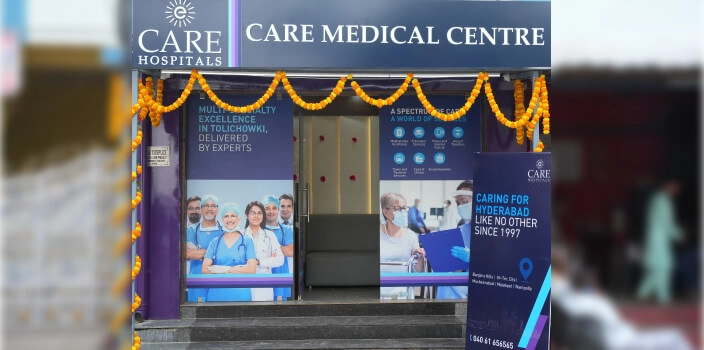-
Doctors
-
Specialities & Treatments
Centre of Excellence
Specialties
Treatments and Procedures
Hospitals & Directions HyderabadCARE Hospitals, Banjara Hills CARE Outpatient Centre, Banjara Hills CARE Hospitals, HITEC City CARE Hospitals, Nampally Gurunanak CARE Hospitals, Musheerabad CARE Hospitals Outpatient Centre, HITEC City CARE Hospitals, Malakpet
HyderabadCARE Hospitals, Banjara Hills CARE Outpatient Centre, Banjara Hills CARE Hospitals, HITEC City CARE Hospitals, Nampally Gurunanak CARE Hospitals, Musheerabad CARE Hospitals Outpatient Centre, HITEC City CARE Hospitals, Malakpet Raipur
Raipur
 Bhubaneswar
Bhubaneswar Visakhapatnam
Visakhapatnam
 Nagpur
Nagpur
 Indore
Indore
 Chh. Sambhajinagar
Chh. SambhajinagarClinics & Medical Centers
Book an AppointmentContact Us
Online Lab Reports
Book an Appointment
Consult Super-Specialist Doctors at CARE Hospitals

Best Hospital for Lobectomy Surgery in Hyderabad
- Advanced Technology
- Shorter Hospital Stay
- Pre & Post-Operative Care
- All Insurance Accepted

Chat With Our Experts
Get second opinion on Whatsapp
25 lakhs+
Happy Patients
Experienced and
skilled surgeons
17
Health Care Facilities
Top most Referral Centre
for Complex Surgeries
Advanced Lobectomy Surgery
Lung lobectomy removes one of the five lobes of the lungs. This crucial surgery is the lifeblood treatment for early-stage lung cancer and certain benign lung diseases.
Video-assisted thoracic surgery (VATS) has changed lung surgery outcomes over the last several years. Research shows that VATS lobectomy has lower mortality and morbidity rates. Doctors now recommend it as the first option for early-stage lung cancer and selected benign conditions. Patients who undergo this lobectomy operation have good outcomes and positive survival rates.
This article explains the lung lobectomy procedure, its indications, and what to expect during and after your surgery.
Why CARE Group Hospitals is Your Top Choice for Lobectomy Surgery in Hyderabad
CARE Hospitals delivers excellent patient outcomes through complete lung lobectomy procedures. Our surgical techniques help patients recover faster with minimal discomfort.
- Our thoracic surgeons bring years of experience and deep expertise in lung surgeries, including complex lobectomies.
- At CARE Hospitals, our surgeons tailor each patient's care plan based on their condition, preferences, and overall health.
- Our experts give patients complete support throughout their treatment experience, from diagnosis through recovery.
- Our experts use video-assisted thoracic surgery or robot-assisted lobectomy for lung cancer treatment to reduce complications and improve surgical outcomes.
Best Lobectomy Surgery Doctors in India


Advanced Surgical Solutions at CARE Hospital
CARE Hospital combines traditional methods with advanced approaches for lung surgery:
- Video-assisted thoracoscopic surgery (VATS)—small incisions with camera guidance, and having a fewer complications when compared to open procedures
- Robot-assisted thoracoscopic surgery—offers greater precision and reduces hospital stays
- Advanced imaging technologies—these help in locating the tumours accurately
Indications for Lobectomy Surgery
CARE Hospital's lobectomy treatment addresses several lung conditions, such as:
- Lung cancer (especially early-stage non-small cell lung cancer)
- Tuberculosis (TB)—a long-term bacterial infection affecting the lungs
- Lung abscess—a pus-filled area that needs removal
- Benign tumours that press against blood vessels
- Fungal infections in lung tissue
Types of Lobectomy Procedures
CARE Hospital specialises in different lobectomy procedures:
- Open lobectomy—A larger incision with rib spreading gives access to the lung
- VATS lobectomy—Small incisions and camera guidance make this minimally invasive
- Robotic-assisted lobectomy—Robotic technology provides precise surgical control
Patients can now leave the hospital sooner; this is for the reason that minimally invasive procedures need only 2-3 days of hospital stay compared to traditional methods.
Pre-Lobectomy Surgery Preparation
Patients need several important tests before a lobectomy:
- Physical examination and medical history review
- Chest X-rays, CT scans or PET scans
- Breathing tests (pulmonary function tests)
- Blood tests and heart evaluation
Patients should quit smoking long before surgery to minimise complications. More importantly, doctors ask patients to avoid food and drinks after midnight on the day before the surgery.
Lobectomy Surgical Procedure
Steps include:
- The surgical team positions you on the surgical table and induces general anesthesia.
- The surgeon creates incisions in the chest area. Open lobectomy requires one large incision. VATS, or robotic procedures, need a few small incisions that allow camera access.
- The surgeon gently separates the part of the lung that is affected from the surrounding tissue and removes it.
- The surgeon also places one or more chest tubes to drain fluids.
- Once everything is in place, the surgeon carefully closes the incision with stitches or staples and applies a clean dressing to protect the area.
In general, the lobectomy surgery usually takes about two hours.
Post-surgery Recovery
Patients who undergo VATS or RATS procedures usually spend 2-3 days in the hospital, while open-chest surgery patients need 3-4 days.
Chest tubes stay in place until drainage reduces.
Recovery starts with walking the day after surgery to speed up healing.
Risks and Complications
Irregular heart rhythm (atrial fibrillation) tops the list of complications. Other potential risks include:
- Prolonged air leak (most common complication)
- Infections such as pneumonia
- Bleeding that requires additional surgery
- Blood clots
Benefits of Lobectomy Surgery
Early-stage lung cancer patients have the best chance of a cure through lobectomy. Patients who choose minimally invasive approaches experience faster recovery and less pain after surgery.
Insurance Assistance for Lobectomy Surgery
Most insurance plans cover lobectomy surgery. Notwithstanding that, patients might need to pay some out-of-pocket expenses. Talk to your insurance provider for a clear understanding.
Second Opinion for Lobectomy Surgery
A second opinion helps validate the diagnosis and explore available treatment options. Expert thoracic surgeons offer virtual consultations that eliminate travel needs and provide answers within 1-2 weeks. CARE Hospitals offers second opinion services that help patients confirm their diagnosis and explore all treatment options before making this important choice.
Conclusion
Lobectomy surgery is a vital treatment option for patients with early-stage lung cancer and certain benign lung conditions. CARE Hospitals in Hyderabad delivers exceptional results through both traditional and advanced surgical techniques for this life-saving procedure.
The minimally invasive approaches like VATS and robotic-assisted surgery have reduced recovery times and complication rates by a lot. Proper preparation leads to successful lobectomy outcomes. Each patient needs complete testing and must follow pre-surgical guidelines carefully.
Patients should think carefully about their decision to undergo a lobectomy. The patient-centered approach, combined with state-of-the-art surgical expertise, makes CARE Hospitals the top choice for lobectomy surgery in Hyderabad.
Lobectomy Surgery Hospitals in India
-
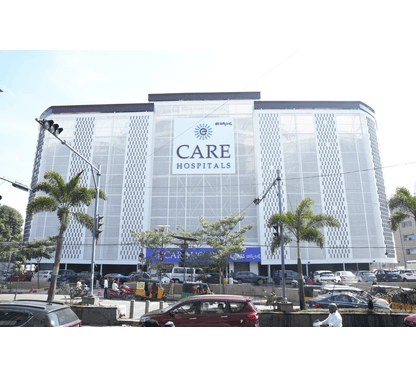
CARE Hospitals, Banjara Hills, Hyderabad
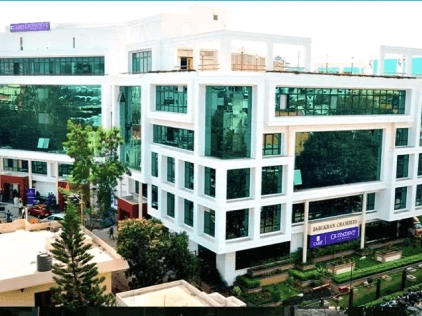
CARE Hospitals Outpatient Centre, Banjara Hills, Hyderabad
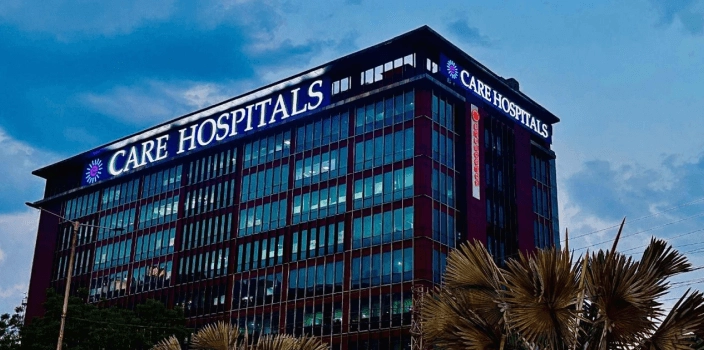
CARE Hospitals, HITEC City, Hyderabad
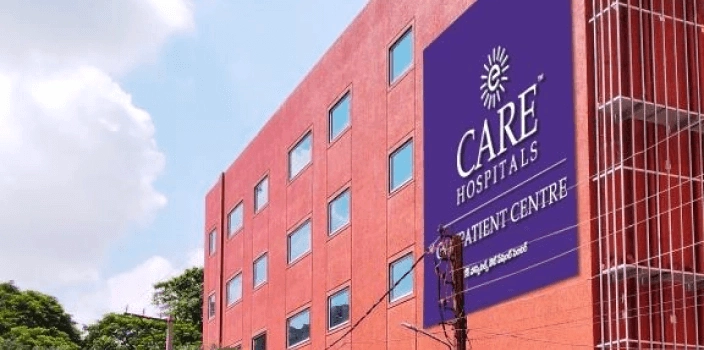
CARE Hospitals Outpatient Centre, HITEC City, Hyderabad
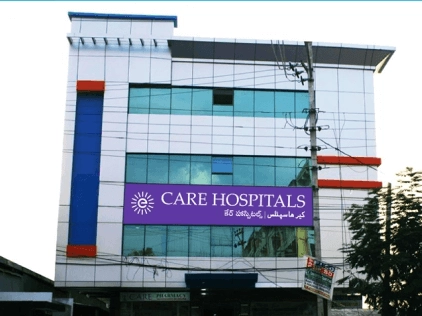
Gurunanak CARE Hospitals, Musheerabad, Hyderabad
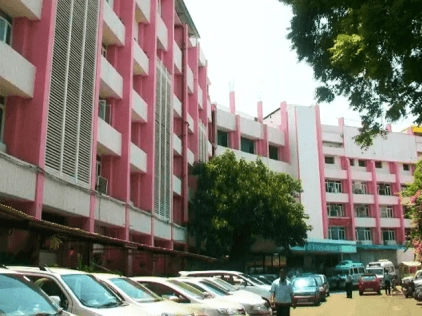
CARE Hospitals, Nampally, Hyderabad
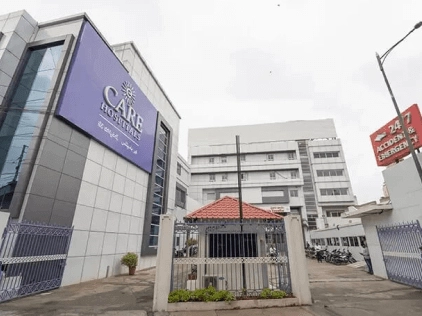
CARE Hospitals, Malakpet, Hyderabad
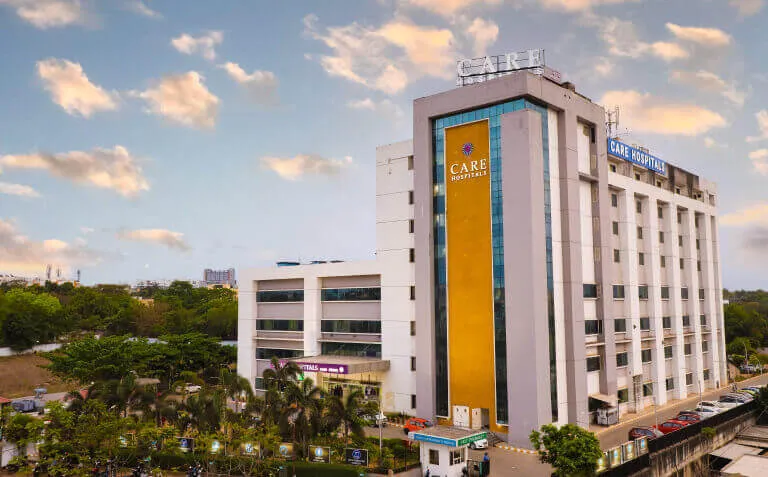
CARE Hospitals, Bhubaneswar
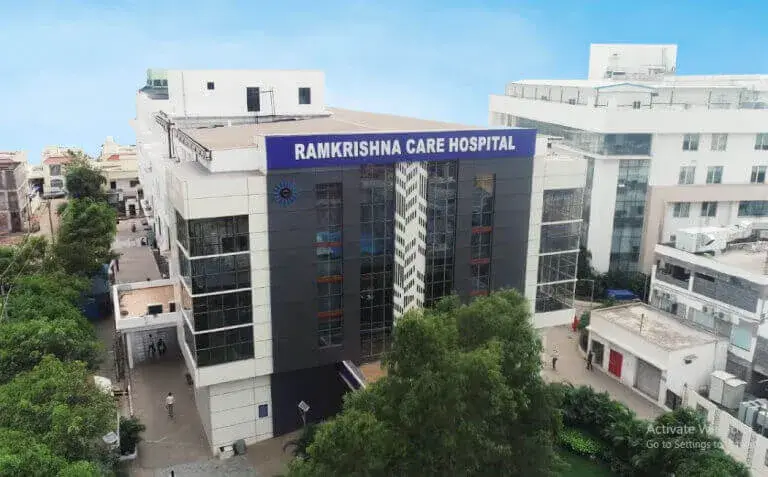
Ramkrishna CARE Hospitals, Raipur
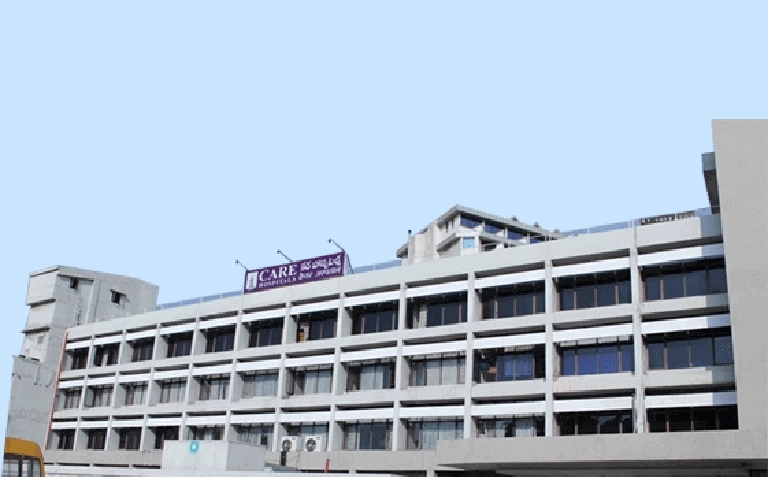
CARE Hospitals, Ramnagar, Visakhapatnam
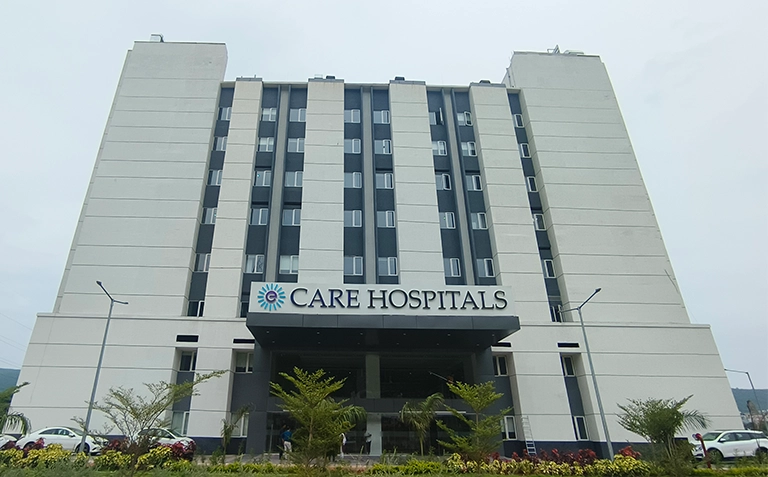
CARE Hospitals, Health City, Arilova
Frequently Asked Questions
Lobectomy surgery removes one of the five lobes of your lungs. Your right lung has three lobes, and your left lung has two. This procedure treats lung problems in a specific part while the remaining healthy lung tissue continues to function normally.
Doctors recommend a lobectomy mainly for:
- Early-stage non-small cell lung cancer
- Tuberculosis (an ongoing bacterial infection)
- Lung abscess not responding to antibiotics
- Benign tumours pressing on blood vessels
- Fungal infections
- Emphysema
The best candidates have enough pulmonary reserve to handle the resection. Patients with FEV1 less than 800 cc or DLCO less than 40% face high risks. The surgery isn't suitable for patients who have had recent heart attacks or severe cardiovascular disease.
The lobectomy surgery is generally safe, with the death rate during surgery being minimal. Patients over 75 years old might experience few risks.
Patients experience some discomfort after surgery. The pain usually decreases with time.
Most lobectomy operations last about two hours.
The main risks include:
- Prolonged air leak
- Atrial fibrillation
- Pneumonia
- Bleeding requiring intervention
- Blood clots
Recovery time depends on your surgical approach. Patients who undergo VATS or robotic procedures usually spend 2-3 days in the hospital. Traditional open-chest surgery patients need 3-4 days. Complete recovery takes 4-6 weeks, though some patients might need 10-12 weeks before feeling normal again. Many patients can return to desk work within two weeks after minimally invasive procedures.
Long-term effects are rarely seen; these can include:
- Pulmonary function decline—seen in some rare cases, but gradually improves over 2 years
- Older patients—especially those above 60—often feel tired.
Every lobectomy requires general anaesthesia. Doctors often add regional blocks or epidural anaesthesia to control pain better.
Patients should not undergo this surgery if they have:
- FEV1 below 800 cc
- Recent heart attacks or a history of of severe cardiovascular disease
- Tumours bigger than 6 cm (for VATS approach)
Thoracic surgeons perform these operations. Patients recover faster and leave the hospital sooner when thoracic surgeons perform an efficient and advanced surgery.
Your recovery requires you to avoid:
- Lifting anything heavier than 2 kg for 6-8 weeks
- Getting behind the wheel for 4-6 weeks
- High-impact activities like cycling or jogging for 6-8 weeks
- Smoking because it affects your long-term recovery
Still Have a Question?
























